I am a white feminist. You guys*. It’s true. I’ve made the argument before that the idea that I function as a woman of color is at best, problematic and defies any uncritical acceptance. I want to go further, now, and point out that I am a white feminist. This puts me in illustrious company – Amy Schumer, Taylor Swift, that actress** who said something ignorant at an awards show, that other one who said something ignorant at an awards show, that other one who said something ignorant at an awards show. Well, you get the picture. And a pretty one, she is not.

You guys, our feminism is WHITE. With just a touch of color over on the far end. Just like this picture. (Source: Unilever)
I don’t actually want to spend this post proving this to you. But let me start with the whitest feminist of my white feminist perspectives. When people say things like, “Can’t we understand that we’re all just people first?” I shut these conversations down, often, particularly recently. I shut them down by pointing out that, precisely because I am a woman, I am messaged in subtle and overt ways, over and over again and since my birth, that I am not a person – that women are not people. The second wave rallying cry, “Feminism is the radical notion that women are people,” was necessary as precisely in that day, because society did not behave in a fashion that suggested it believed this statement, as the phrase Black Lives Matter is necessary in more recent discourse.
This is the whitest thing I have to say, of all the white things I say and all the white things I do – I see myself as a woman first, before all my other identities. This is white feminist precisely because, as I’ve come to be educated, my feminist – even my womanist – sisters of color very rarely see things this way, because race is almost always their most unignorable experience. It isn’t mine. So they’re proudly women, but woman is somewhere lower on their list, most commonly. Often second. In contrast, most of the time, like other white feminists, my race is only relevant in discussing my experience because it privileges and protects me. And like my white sisters, I am more often unaware of it than in any other state. What is important about this is that I am not saying I “pass” for white – I am saying I function as white. These two are not at all the same thing. I benefit from privilege. I did not seek it out.
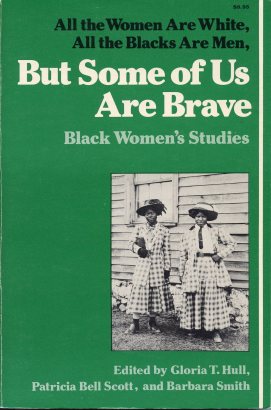
You guys, this is how far our sisters of color have to go to correct the bullshit that we too often call feminism.
But back, for a moment, to my white feminist identity. I say I am a woman first, not because I want all sisters to say this, but because this is how I experience the world. I stop, later, and recognize, yes, I do have a race, and that it is indeed part of who I am. And that I have a class – actually, I am aware of my class more often than my race. But even that is a relative rarity, while I am almost never unaware of how being a woman affects my experiences.
I’m not entirely saying I don’t experience racial microaggression***. Occasionally, other white people – like really, really white people – can make a play to erase my privilege. In fact, last night, I had one of these conversations with a white woman. You know the one. It began with. “You’re so exotic. Where are you from? Don’t say Michigan.” But this not only happens less and less, but it seems to be less and less effective at marginalizing me.
Sisters of color, if you are not already fed up with me, have not already stopped reading, please know this (and continue reading, if you’d like). My goal is simple: I want to help us white feminists figure out how to stop being such a pain in the ass. Don’t be nice. You know it’s true. That is precisely what we are. My goal is to help us be the good Sisters we are meant to be, and not the bad Sisters we have been most of the time. My goal is not to celebrate the outsize space we take up in movement, but to help us to a path to actually allow us to address our misbehavior and stop stealing your space.
Back to my fellow white feminists. Okay, so a solid chunk into this screed, how am I going to accomplish this goal, if I have not turned you, too, off? I think I have an answer. Like all very complicated things, it is also very simple.
We are faced with a conundrum. We are rightly called out for our white feminism. We are told to knock it off. In fact, we want to knock it off. Badly. Erm. We want it badly, but we actually instead do it badly. Here’s why. We replace white feminism with white intersectional feminism. Which, unsurprisingly, is crap. What do I mean by this? White feminism is the queen of all single-cause social justice movements. Its one cause is to help white women feel less worthless all the time. You see, we take up outsize space within movement, and we take up even outsize space in racially mixed groups outside movement, but we take up far less space than we are due in polite white society. And we do, actually, feel worthless, like all the time.
This is the conundrum in which we’re stuck, much to the chagrin of our sisters of colors. We are white feminists because of our experience of marginalization. Our experience, in which race is a source of privilege and not marginalization, begins young. We are not born hating women, perhaps. We open our eyes and see our mother (most of us do), and we love her. She is, in fact, nearly everything. But soon, we notice that the world does not love her, does not value her. And perhaps we learn to hate women by first scorning her as the world scorns her, or perhaps we do not learn to hate women until we recognize ourselves in the mirror. But hate women, we do, sooner or later. And as we are nurtured on the mothers’ milk of misogyny, we learn that we are needy. Overly emotional. We are told and told constantly, although it seems like we try to take up no space at all, we are in fact taking up far too much space. We are told that, although it seems we give far more than everything we have to others, we are greedy for withholding our bodies, our hearts, even our smiles. This is, perhaps, why we sit on the edge of chairs even when they are made for only one person. Because we are not worth the space of one person – we can at most be a fraction of a person, and even then we are inevitably too large a fraction. This is, perhaps, why we paint our smiles on twice, once with makeup and once with the falsity of “putting forth one’s best.”
Our feminist experience then, white feminist sisters, is that we learn this state, we become awakened (often by sisters and sometimes even by brothers of color, who have always had our back in a way that we have not had theirs), and then we band together with others of like experience – that is, other white feminists (because, help us though they did, our experience did not feel quite like the experience of our sisters of color, because, in fact, it was not quite the same). So we bond with other white feminists. And we do get as far out of privilege-borne narcissism to realize that their suffering is like ours, and that the means to our own happiness and theirs are inextricably linked. This is our feminist experience – it is not quite like the feminist experience of our sisters of color, many of whom are taught to hate their race even before, and far more thoroughly than, they are taught to hate their sex.

Kyriarchy, as far as I know, has nothing to do with that annoying 80s song (Source: That annoying 80s artist who sings that annoying 80s song)
Being confronted with the white feminist nature of our white feminism, surprisingly, is precisely where we go most astray. For we are faced, it seems, with two options: White Feminism (capitalizing for the willful practice of foolishness), or intersectionalism. Some of us choose White Feminism. We turn to actively saying things that are destructive. Our feminism becomes a tool of kyriarchy**** and not of liberation. For the rest of us, who would rather die than knowingly put people in chains, the only option we have is intersectionalism. But we don’t know how to stop being white feminists (back to lower case), so we become white intersectional feminists. This, I am arguing, while insidious in its danger, has the possibility of being even more problematic than White Feminism.
The why and wherefore of this comes directly back to how we became feminists – our marginalization histories, and our years of internalized misogyny before we were awakened*****. Sadly, this is the only framework in which we can process the fact that we take up too much space in movement – both in feminist movement and in social justice movement. We do two deeply destructive things in response. They both run deep in us, but for different reasons.
The first, which comes from our marginalization, is that we cover over our need, as we always did before we awakened. We recognize that, in the scheme of things, although we are less privileged than wealthy white men, we are often very privileged. So we place ourselves in a classic old feminine hierarchy, one in which too many of us spent our whole childhood being victimized, deciding whether our pain is of enough merit to voice, and we find that it is not – almost always not. But our silence is precisely what suffocated us before, and it does precisely the same now. And suffocating, dying of asphyxiation, our feminist yearning to survive takes hold, and so even in trying to do this, we lash out. Except now, and precisely because we were holding our breath to try and make space for them (or rather, to try and avoid our habitual stealing of their space) that we lash out at our sisters and brothers in arms. But we know this is wrong, and we hate ourselves all the more for it.
The second thing we do is much like the first, but it comes not from our marginalization but our privilege. We take on the role of Overlady (or Overlord, if your feminism thinks you will be equal when you are a man). I have seen this so many times. White intersectional feminism, unlike intersectional feminism that is not white, is hegemonic in general, like all white feminisms. Its hegemony comes from our whiteness and not our feminism. When she is taught intersectionalism, she “naturally” takes on a conductress role in which she becomes Arbitress of the Intersections. She self-designates her role as deciding who matters more, and who matters less. She silences thus, not just herself, but her sisters as well, for the misguided hope of “giving her voice” to her sisters of color, when indeed, they need not be given her voice so much as she must stop stealing theirs. This, of course, is the prison of internalized and self-policed misogyny in which too many of us were reared – that is, we are leading our white feminist sisters back into precisely the gilded cage from whence we emerged, and we believe it is feminist that we lock them back in the cage and stand guard******.

This is what that Arbitress role looks like when it is held by a dude. Please overlook the grammatical lapsing in my comment, however, which was originally directed to our new Mayor
It should hopefully have become very clear that she does this because she is white, not because she is a woman or because she is a feminist.
We need, very simply, to stop being white intersectional feminists and engage in a more assertive******* dialogue in which we embrace our feminism but learn to undo our whiteness. Our white feminism tries to say, because race marginalization is so much more onerous a burden on others than gender marginalization is on us, womanhood doesn’t matter. That is not a feminism at all. This is not an assault on our sisters of color – only we white feminists say anything this stupid. Note that our sisters of color who reject the label of feminist call themselves womanists. But we create a feminism that liberates others but does not liberate oneself, and this encapsulates, inevitably, that most unfeminist sentiment of all. If I do not believe I matter, then I cannot truly believe women matter, for I am a woman. I learned this years ago but forget it, time and time again, with surprising alacrity.
I become the proverbial empty pot from which no tea (but much hatred) may be poured. But likewise, a feminism that says that race marginalization is not real, or, astoundingly, says treatment by society is better when one is poor and black in America than rich and white, is just foolishness masquerading as feminism. Of all the intersectional feminisms, only white intersectional feminism would make either claim. The problem is not that we white feminists do not occupy intersecting identities, but that we occupy a great many privileging ones, and the still-profound marginalization we experience is due to just the one or two, having to do with our womanhood and femininity, that are not privileging.
We thus cannot simply drop the white and be intersectional feminists, which would be a simple answer and of great service to our sisters of color if it were possible. We do not know how to do this. We might, someday – this would do so much, if not everything, to stop racism. This is because, and we must learn this, race is entirely about the fact that our whiteness makes us “matter” in the kyriarchical system of racism, and the non-whiteness of others makes them not matter, or at least matter much less. Thus, if we could stop being white******** – that is, not stop having a racial identity, but stop having an hegemonic racial identity, then we should undo racism itself, because it is precisely the hegemonic nature of our racial identity that created and maintains racism.
It is not incidental but paramount in understanding the situation, to realize that white is not a single racial identity but a cluster of racial identities into which groups have been privileged, over time, and it, itself – not our skin color but the in-group powers we are conferred when our skin colors are granted the privilege of whiteness, is the source of the hegemonic systems that hurt us and with which we hurt our sisters and brothers in arms.
This is the non-parallel nature of the system. One does not need to learn to stop being African or Latina. But one must learn to stop being white. It actually does operate much in parallel with the hegemonic nature of manhood, into which one is privileged, and the captive role of womanhood, into which one is cast. Just as we have learned that eliminating sexism, even from ourselves, is no easy task, eliminating whiteness, even from ourselves, will be no easy task. One does not need to learn to stop being a woman. One must learn to stop being a man in the hegemonic identity sense, if one wants not to be a tool of patriarchy. African and woman are not hegemonic identities*********. White and man are. We white feminists have a foot in both worlds. The wealthy white feminist is like the child who leads far and periodically darts back to base to tag up and avoid being thrown out by the pitcher for stealing.

I make, dear sisters, a sporting analogy (source: Wikimedia)
What is different about this line of sentiment is that it recognizes we cannot fiat our way out of whiteness nor expect others to do so. It allows us to confront the domineering nature of the discursive system our whiteness creates, while continuing our own liberation as women, and reducing gender-based oppression. I am neither asking us to magically stop being white, nor asking us to accept our whiteness as “the way things are.” So in the end, I offer no magic bullet, but rather a turning into the sharp points. I call us as white feminists to do the hardest thing we’ve ever had to do, and learn how to stop being white, and in this way, and this is precisely why I am recognizing my white feminism, I believe we can learn to stop being white feminists and finally become feminists.
Notes:
* After all, I do say “you guys.” Like, a lot. And like, like, a lot. And it labels me as in group instead of marginalizing me.
** Another post, another time, on why it is not such a feminist victory that we say actor instead of actress, but I will respect the preference of others, and it seems that Delpy uses actress, which is admittedly the term I would also use, were I an actress instead of a provocatrice.
*** And I’m certainly not saying that all my Indian-American feminist sisters are white feminists. Probably most of you don’t feel you are, and the circumstances of my experiencing life in such a white fashion are a complex thing that still remains much shrouded in mystery, even to me.
**** If intersectionalism is the recognition that we operate in intersecting identity spheres that confer on us layers of privilege and marginalization, and that make our experiences, each of us, unique, then kyriarchy is that kissing cousin who reminds us that patriarchy itself is one of intersecting systems of dominance and marginalization that, itself, interacts with other systems, such as racism and classism.
***** Awakened with a kiss, doubtless, this is a white feminist fairy tale, after all, and one reposes gracefully to be woken by kisses in our world. It’s just a fairy tale of the proper, Grimm sort. That is, the fantasy is more warning than pleasant distraction.
****** Right outside the cage door, since someone must be free, after all, and it might as well be me. And we fool ourselves that, because we are in the prison as wardens and not prisoners, we are free, when we can never be free as long as there are prisons.
******* When we teach communication, we teach that there are three principal styles – aggressive, assertive, and passive. A passive style – which is nadir and birthplace of most of us white feminists – is one in which the needs of others matter, but our own needs do not. We know this too well, but our feminism was liberating to us entirely because it exposed this lie, and it will never be a source of liberation for anyone if it returns to it. It is the style of the self-made martyr. An aggressive style – in which our needs matter but those of others do not, is the quintessentially White Feminist style. The white intersectional feminist style tends to be a mixture of the two – passive aggressive. Which you’ve probably been taught is not a compliment.
******** Here I reveal that when I talk about being white, I am entirely talking about privilege, and the harm done to the world because I am given it. I do not aspire to whiteness and claim to have reached it – I find myself stuck in it and am trying to escape it.
********* At the risk of having a ridiculous number of footnotes, there are some rare but notable exceptions to this statement. In the context of exclusionary feminists who operate not in the context of women and men, but in the context of cis women and trans women, woman in their usage becomes a hegemonic identity into which one must be privileged. In general, in this way, Straight is a hegemonic identity and queer identities are generally not, but a like exception in the context of queer women’s culture is when lesbian friends reject a woman whose partner comes out as a trans man, perhaps because he will now have to struggle with having moved into a hegemonic category as a man. I feel like I have to run the risk of footnote perversity and explain this exception, since I was reminded of it by a couple I just met yesterday, who had that latter experience.


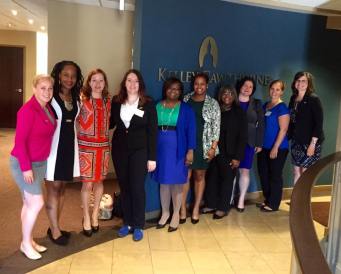






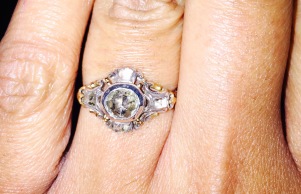

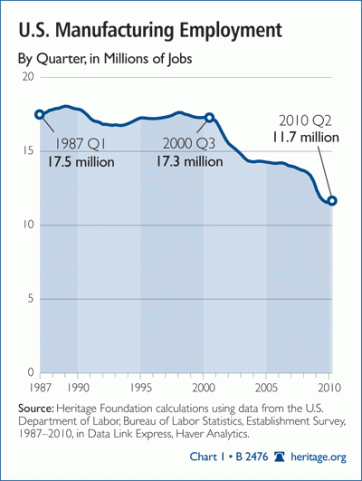


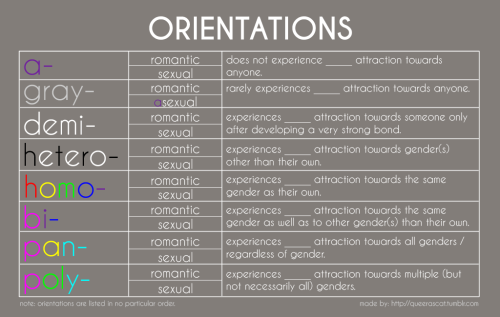







I had the opportunity last week to speak briefly, on television, about inclusion of LGBTQ students, particularly focusing on transgender students. This comes in the context of a draft guidance from our state Board of Education, and I want to share more detailed thoughts on that topic.
Thank you so much to WOOD TV 8 for having me out to discuss the need for schools that are safe and empowering for all Michigan kids
Below is the text of my public comment on the Michigan Board of Education’s Draft Statement and Guidance on Safe and Supportive Learning Environments for Lesbian, Gay, Bisexual, Transgender, and Questioning (LGBTQ) Students (you can read the guidance here). Public comments are being accepted through May 11, 2016, and if you have something to say, I strongly encourage you to speak. You can make your comment and read comments here.